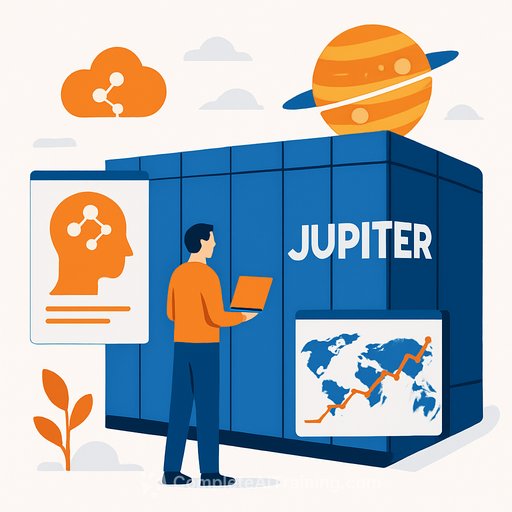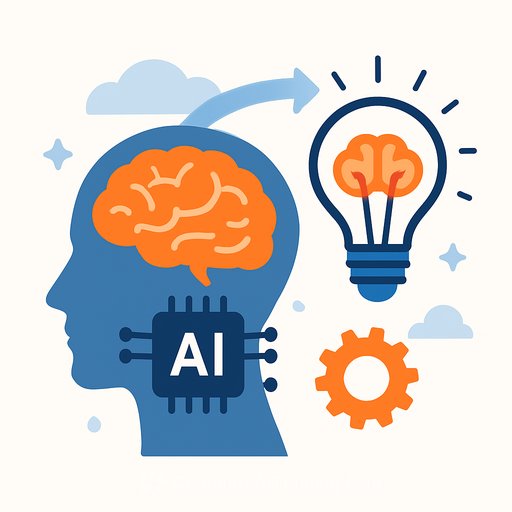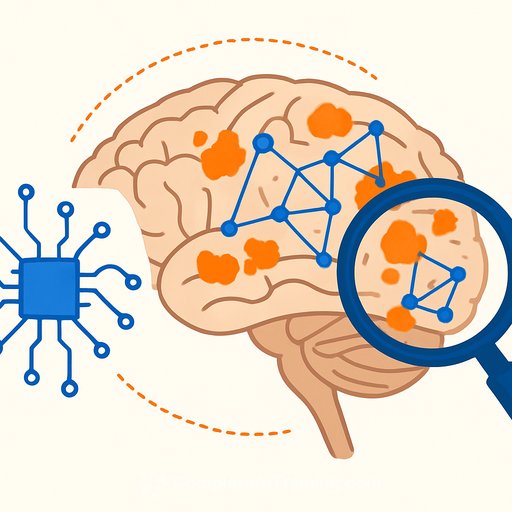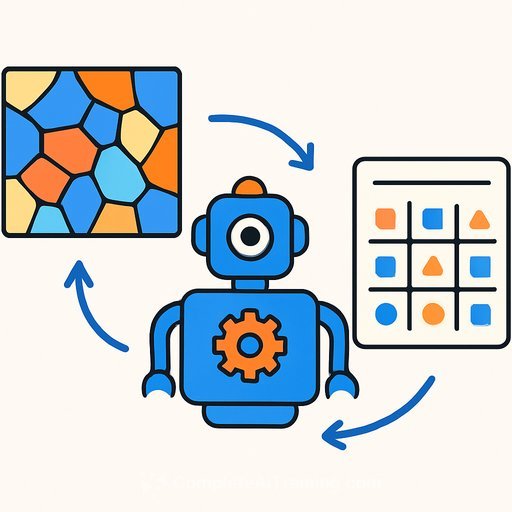JUPITER: Europe’s First Exascale Supercomputer Drives AI and Climate Science
On September 5, 2025, the Jülich Research Centre in Germany inaugurated JUPITER, the first European supercomputer to exceed the exaflop performance mark. This milestone means JUPITER can perform over one quintillion calculations per second, placing it among the fastest computing systems worldwide.
The system operates exclusively on renewable energy and incorporates advanced cooling and heat management technologies. Its efficient design earned it the top spot on the Green500 list, ranking it as one of the most energy-efficient supercomputers globally. Covering more than 2,300 square meters and composed of roughly 50 modular containers, JUPITER currently ranks as the fourth-fastest supercomputer in the world.
Advancing Climate Research with High-Resolution Modeling
JUPITER’s computing power enables running high-resolution climate and meteorological simulations at kilometer-scale detail. This capability improves the accuracy of forecasting extreme weather events, including heat waves and floods, providing valuable data for scientists and policymakers addressing climate challenges.
Central Role in Europe’s AI Development
Beyond climate science, JUPITER will serve as the foundation for the future European AI factory JAIF. It will support the training of large language models and other generative AI technologies. The €500 million investment, funded jointly by the EU and Germany through the EuroHPC programme, is part of a broader plan to establish AI gigafactories across Europe. These facilities aim to equip industry and research sectors with the resources to develop new AI models and technologies.
The deployment of JUPITER is expected to strengthen European research and industrial collaborations, boosting the EU’s global standing in artificial intelligence and scientific innovation.
Further Reading
- European Commission Press Release on JUPITER
- Explore AI Courses to Stay Current with Advances
- Recent Study on Atlantic Meridional Overturning Circulation (AMOC) Risks
Your membership also unlocks:





